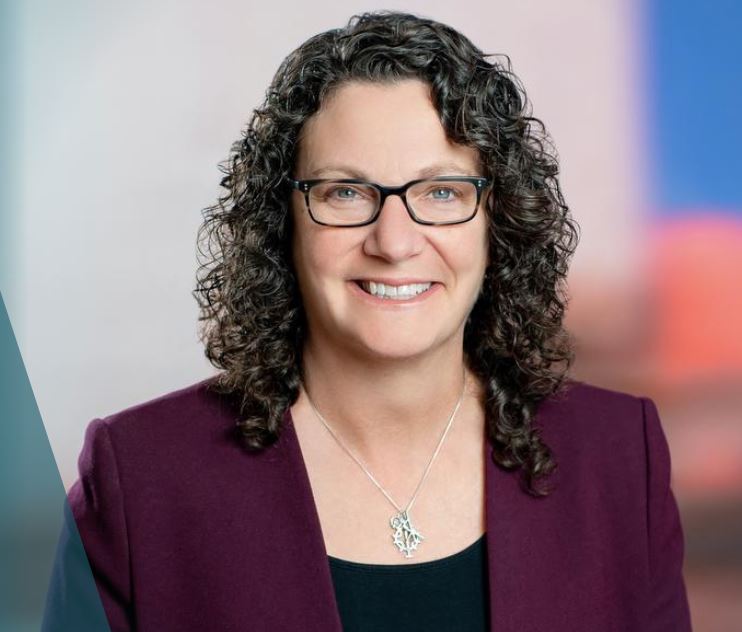We speak to Susan Berson, a partner at the law firm Mintz, about the importance of maximizing mentoring relationships, especially for younger, women lawyers
Being a mentor has “taught me a lot about how to communicate with others, how to be empathetic, and how to put myself in their position,” says Susan Berson, Partner at Mintz and Chair of the Health Law, Communications, Antitrust practices at the firm. She is also Chair of ML Strategies, the firm’s consulting affiliate.
Internally at Mintz, Berson is also known as an über-mentoring champion, an informal mentor to dozens of attorneys, and one of the key players in most of the firm’s mentoring programs.
Before going to law school, Berson never saw herself as a lawyer and originally planned on working in the healthcare industry. She only went to law school because her parents stressed getting as much education as possible as a first-generation American family. However, the universe had different plans.
After graduating from law school and before joining Mintz, Berson worked at a boutique law firm and was given the opportunity to gain expertise in healthcare regulation and safe harbor laws. She became known as the go-to attorney in reviewing transactions in the healthcare industry and the resident expert on anti-kickback laws. This expertise gave her access to healthcare companies through the firm’s private equity clients.
As the healthcare regulatory marketplace evolved, Berson found it an easy path to continue to develop her expertise, particularly in pharmacy benefits which also helped accelerate her career.
‘It can be done’
Berson holds two other key leadership roles at Mintz, sitting on the policy and compensation committee and the women’s initiative steering committee. She credits her ability to garner the skill and influence to serve in these roles to being action-oriented and a problem solver with a “can-do” attitude in whatever capacity she was leading or serving.

She adopted the mantra, “It can be done” unconsciously from a named partner at the first firm at which she worked. “As my career advanced, I think that the saying helped me,” she explains. “And I’ve given it out to people that work with me.” For example, when a client would come to her with a less-than-stellar or risky idea, Berson diplomatically steered the client away from their idea by asking questions about the overall goal behind the idea. From there, she and the client would come up with a strategic and creative way to achieve the goal.
Indeed, Berson’s secret weapon is her passion for the business side of the law and her ability to communicate in the language of the client and find alternate ways to solve problems.
Berson has been closely involved in most of the firm’s mentoring programs. Mintz employs several distinct programs based on the audience — one for junior associates, patent agents, and new lateral associates; one for senior associates; one attorneys of color; and an informal one for women called the “the 66 Supper Club,” which is named after the year the first woman made partner at Mintz in 1966. The women-focused program features a small group of associates meeting with two partners over dinner to get to know each other better on a personal level.
“Our sponsor program really is intended to ensure that associates of color are fully integrated and are retained through the membership (partnership) ranks,” she notes. “This program exists to assist them with any gaps in experience, goal setting, and career planning. The program also makes sure that the participants are introduced to influential individuals at the firm and have access to networking opportunities outside the firm.”
The firm’s program for senior associates, called the Adviser program, “helps with professional development, providing guidance relating to goal setting and career planning for the path to partner and helping to increase visibility both within the firm and externally” as senior associates plan their path to partner, she adds.
Let the mentor get to know you
With her expertise in being a mentor and matching mentor and mentee pairs, Berson understands how to maximize the investment of people’s time spent administering the program and individually for both the mentor and mentee. She says that mentors should have at least a minimum of two years seniority above the mentee, and says this has enhanced her ability to connect with attorneys across generational differences and from diverse backgrounds.
Berson also advises that a firm should take the mentee’s unique situation and goals into consideration when being paired with a mentor. For example, if the mentee is a working parent or has a reduced-time work schedule, that should be a consideration. Other career factors, including how many people of influence the mentee knows or doesn’t know, whether the mentee wants to move to another office or wants to gain unique experience in their practice are also important and should be considered. “For a lateral attorney, we want the mentor to focus on firm resources, really help the lateral understand the firm’s culture and what’s important to us in addition to making introductions to others in the firm,” she says. In this case, the mentee would need someone well-connected in the firm.
For mentees, taking initiative to own the relationship with the mentor and drive the agenda for meetings is the best way to maximize their own efforts as well as those of the mentor and others involved in managing the program. “Setting up regular meetings, showing your mentor that you’re proactive, and checking in with your mentor pays dividends,” Berson states. “Showing that positive, proactive attitude will pay off.”
Mentees also need to share who they are as a person, Berson adds. “Mentees shouldn’t just be coming to the mentor and saying all the matters they’re working on and how many associates they’re overseeing, or how many partners they’re getting to work with,” she says, adding that it is crucial that mentees let mentors get to know them. “Let them know what is important to you, how you think you can succeed in the law firm, and what are your fears about not succeeding.”
The best relationships evolve based on a personal connection and by building trust through showing some vulnerability, Berson says.







